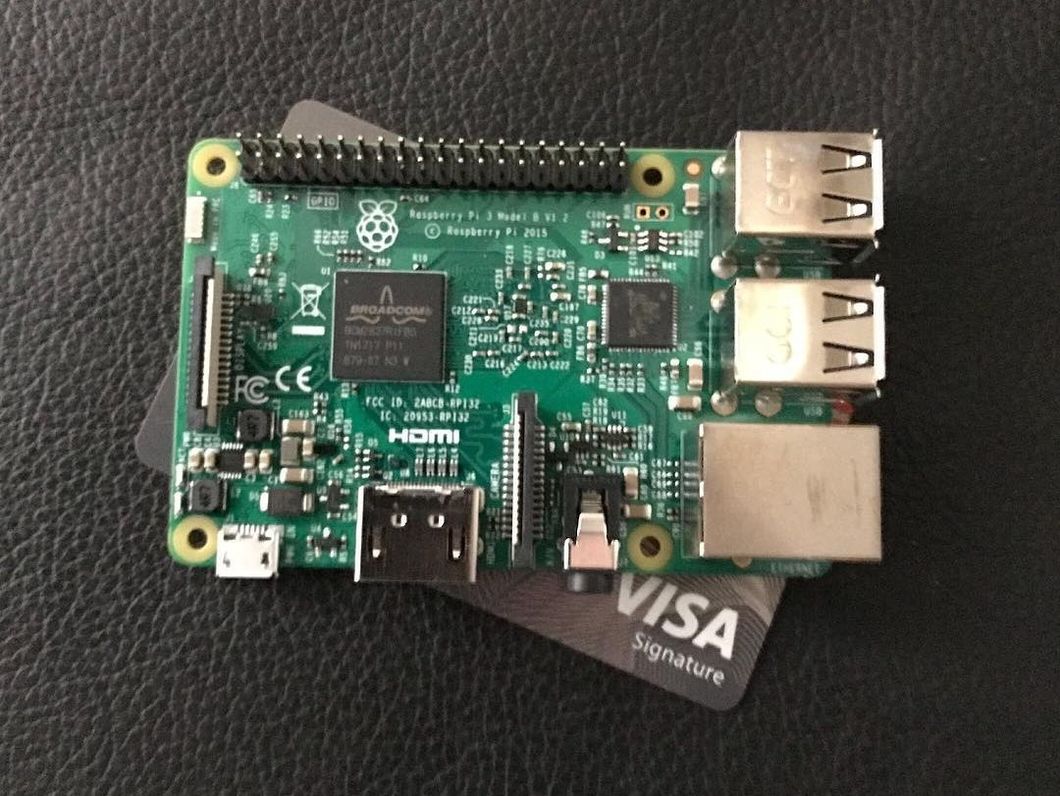Where would we all be without computers? Pretty much everyone I've met (including myself) has been glued to their smartphone screen at some point, itching to complete the next level of Candy Crush Saga. I never understood just how they worked and how amazing they can actually be, until about four years ago.
In 8th grade, I took a talent class, which was an extra class that people could take to boost their knowledge of a certain topic of their interest. Out of a few offerings such as art and drama, I chose to pick computers because I was interested in how they worked. One of my first assignments of the year was to go to the annual New York Maker Faire held in the New York Hall of Science. I visited with my parents and came across a booth that had a tiny circuit board plugged into a monitor. That happened to be one of the first credit card-sized computers ever made, called the Raspberry Pi.
Its goal was to introduce people of all ages to computers and how to code in them. Given that each unit was just 35 dollars, it seemed like quite a steal to buy a full-fledged computer at such a low price. After begging my parents for one, I managed to first load up the terminal, which I've never seen before. This operating system was a variant of Debian, which is a version of Linux. Since this was my first time seeing Linux, I couldn't help but wonder just how different the user interface looked from Windows.
I began to look at tutorials on YouTube to see just what I could use it for, other than just as a more portable web browser. When I began to load up Python 3, I was introduced to the amazing world of computer programming languages. Just like every programmer does when starting a new language, I started with sample code that displayed:
print "Hello, world!"
It wasn't until 2 years later, in 10th grade, that I understood more about how Python works and its near-infinite potential. However, this gave me the chance to play around with the language to see just what I could do. And that's what I did. I coded frequently in my spare time as a new fire inside me was lit that motivated me to keep learning.
I managed to create a program called "replicator.py," which was supposed to be a virus, but eventually turned into a giant GUI where I put other functions inside it, such as a calculator, complete with trigonometric functions, code to instantly shut down the computer, a countdown that displayed seizure-inducing color sequences, and shortcuts for me to access Linux's Terminal or Windows' Command Prompt, based on what OS I was running the program in. Despite this no longer being a virus, it's one of the most memorable projects I've undertaken, and thus I kept the name for posterity.
I've since outgrown the old Raspberry Pi, and it sits on my desk as a memento. I credit the Raspberry Pi for giving me the spark to learn and like computer science enough to take multiple classes in high school, as well as for giving me better insight into just how computers operate on the inside, which finally answered my question from 4 years ago. I've since moved on from just Python, and I've coded in HTML, JavaScript, R (for a little), and Java.






 Lumiere figure at the Disney Store at the Ala Moana Shoppi… | Flickr
Lumiere figure at the Disney Store at the Ala Moana Shoppi… | Flickr








 StableDiffusion
StableDiffusion StableDiffusion
StableDiffusion 10. Extra BlanketsJuwenin Home 100% Cotton Knitted Throw Blanket
10. Extra BlanketsJuwenin Home 100% Cotton Knitted Throw Blanket StableDiffusion
StableDiffusion StableDiffusion
StableDiffusion File:Kishlaru familie.jpg - Wikimedia Commons
File:Kishlaru familie.jpg - Wikimedia Commons Photo by Hanna Balan on Unsplash
Photo by Hanna Balan on Unsplash StableDiffusion
StableDiffusion black blue and yellow round illustrationPhoto by
black blue and yellow round illustrationPhoto by 





 woman holding glass jar
Photo by
woman holding glass jar
Photo by 






